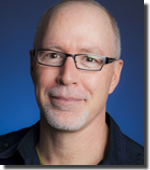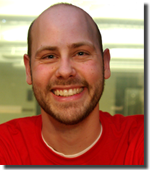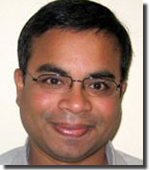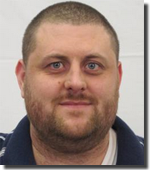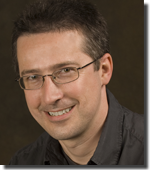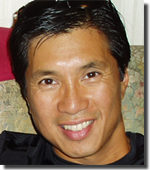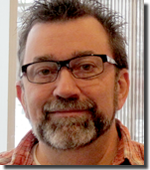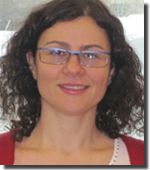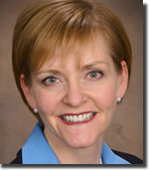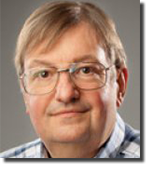Virtual Conference
|
|
|||||||||||||||||||||||||||||||||||||||||||||||||||||||||||||||||||||||||||||||||||||||
8:30 AM PT • KEYNOTE–Beyond the Web and Apps: The Domestication of Knowledge |
|
|
James Whittaker | Microsoft |
||
|
Since the dawn of computing, we've invented only two ways to get work done―the web or apps. We hunt for information on the web or we gather functionality from the app store. In each case, users must take the initiative to find the information they need. We've become used to this life of hunting and gathering, but its time is ending. A new era of domesticated information and functionality is dawning. In this new world, the web's information comes to users when and where they need it. Apps won't have to be installed and updated; their functionality will simply find its own way to users when it is needed. James Whittaker describes the technologies that are enabling this new era of domestication and describes how both developing software and using computers will fundamentally change the world in which users—and especially developers—live and work. New knowledge APIs and cloud functionality are waiting to make your apps more capable than ever before. Come hear about it. It's going to affect us all. |
|
|
10:15 AM PT • KEYNOTE–For Maximum Awesome |
||
Joe Justice | Scrum, Inc. |
||
|
An agile hardware and engineering company of 500 collaborators in twenty countries, Team WIKISPEED uses test-first development practices, is run by Scrum teams, and produces road legal cars, micro-houses, and social-good projects. Joe Justice shares how their 100-MPG road car was created in just three months through object-oriented design, iterative development, and agile project management. Joe describes how agile software techniques are applied to physical engineering and manufacturing, and how cross-functional team members can eliminate the constraints we imagine around traditional manufacturing. He shares the example of the design and development of their ultra-efficient, modular cars, and their client’s projects in satellites, laboratory equipment, missile systems, radio systems, medical devices, software projects, service deliveries, marketing, finance, HR, and others. Hear examples of exactly how to launch or relaunch your projects and organization with Joe’s methods. Get inspired to change your world for the better. |
|
|
12:45 PM PT • Driving Lean Innovation on Agile Teams |
||
Sanjiv Augustine | LitheSpeed |
||
|
The Lean Startup® methodology has taken the business world by storm and is revolutionizing product development through the application of a Build-Measure-Learn cycle, and the systematic application of techniques such as Customer Discovery, Customer Development, and Pirate Metrics. With agile teams in place, how can organizations drive lean product innovation on their agile teams? How can we bootstrap product development with product roadmaps and business requirements that are truly aligned with end-user needs? Sanjiv Augustine shares how to drive lean innovation on your agile teams by setting up clear, short-term experiments using the popular Lean Canvas tool; structuring direct customer interaction through systematic customer interviews; conducting release planning informed by actionable metrics; and creating a “dual-track” of no- and low-cost UX prototyping in conjunction with agile delivery to reduce the cost of iteration while validating ideas and features. Learn how to extend your agile delivery knowledge into the product space to deliver products that customers love. |
|
|
2:15 PM PT • The Secrets of Mobile App Testing |
|
Jason Arbon | Applause |
|
|
Most app teams aim for 4 stars—not 5. Why? Because delivering and maintaining a high-quality app becomes more challenging every day. Agile engineering and continuous integration put more pressure than ever on testers and quality-focused developers. Add to that the raw complexity of device and platform fragmentation, new sensors, app store processes, star ratings and reviews, increased app competition, mobile automation frameworks that only half work, and users who expect the app to not just work flawlessly, but also to be intuitive and even beautiful and fun. Jason Arbon shares app testing secrets gleaned from thousands of testers on hundreds of the world’s most popular apps, and data analytics on millions of apps and hundreds of millions of reviews. See how the best teams manage their star ratings and app store reviews. Learn what has been tried—and has failed. Get a glimpse of the future of app testing. |
|
3:45 PM PT • SAFe: The Scaled Agile Framework |
||
Jared Richardson | Agile Artisans |
||
|
The Scaled Agile Framework (SAFe) is a popular process for enterprise-wide agile adoption. It is a pre-built framework that describes the individual roles, teams, activities, and artifacts necessary to scale agile from team to enterprise level while providing a cadence for teams to follow. Jared Richardson, an agile coach at a large insurance company in the midst of a SAFe adoption, brings practical lessons from that work to this session. After an overview of the SAFe framework, Jared describes how the work flows from executives to team members, and then relates that workflow to other agile processes. Learn SAFe anti-patterns and a cautionary message for anyone looking for the silver bullet solution to software challenges. Jared discusses the areas you’ll want to change or monitor to ensure your own efforts succeed. Leave with an understanding of SAFe and an awareness of potential problems—so you can avoid them. |
|
|
8:30 AM PT • KEYNOTE–An Agile Throwdown: Munich Takes on the Columbus Agile Benchmark Study |
||
Michael Mah | QSM Associates, Inc. |
||
|
Agile has not only gone mainstream, it’s gone global. Data on agile team performance, time-to-market, and quality have emerged in the past decade. In 2012, a group of Columbus, Ohio, companies—business, IT, and financial services firms—participated in the first ever “Columbus Agile vs. the World” study. They collected velocity, schedule, effort, staffing, and quality data which were compared against QSM’s Software Lifecycle Management (SLIM) database. Analysis revealed delivery was 31 percent faster with 75 percent fewer defects than industry norms. Enter Munich, Germany. At their OOP 2013 conference, the Columbus results were presented. German companies elected to participate in a QSM-led study of their own to compare their results against Columbus, specifically with regard to time-to-market and quality. Join Michael Mah to look at data patterns for both Munich and Columbus, illustrated side by side. The results might surprise you. See how both cities compared against the SLIM worldwide database of 12,000 completed projects. Michael also discusses what might lie ahead as companies adopt methods from XP to Scrum to lean. |
|
|
10:15 AM PT • See the Value: Focus on Delivering the Right Software |
||
Jeff "Cheezy" Morgan | LeanDog |
||
Ardita Karaj | EPAM |
||
|
Many agile teams focus solely on velocity as their measure of progress. They draw burn-up charts to track it over time and make it the focus of much of their discussion during sprint planning and retrospectives. Is the strong focus on this metric truly in line with the principles of agile software development? Cheezy and Ardita Karaj lead a workshop to explore this question. Discover how focusing first on value, rather than velocity, changes the team approach to the work. Through a series of structured activities, work with a story map for a fictitious project and assign value to the discovered stories. Cheezy and Ardita discuss the practices and skills necessary to track earned value on your project. Learn the valuable lesson of discovering what not to build. Take back a set of new skills you can immediately apply to your development planning efforts. This session will be fun and educational. It is one you don’t want to miss. |
|
|
12:45 PM PT • Service Virtualization: Speed Up Delivery and Improve Quality |
||
Anne Hungate |
||
|
“We could not test this because…” Every technology professional has experienced issues during system testing when unit testing was overlooked or cut short. Every project team has hit roadblocks during system testing when dependent systems or complicated data have been unavailable. Service virtualization is a tool that eliminates the waiting and the excuses, making thorough and complete unit and system testing realistic. Done well, service virtualization improves defect detection and resolution in every phase of a project—driving down cost while improving quality. Done poorly, service virtualization is expensive, time consuming, and difficult to maintain. Anne Hungate shares her formula for picking the right project, building the business case, and staffing to get the work done. Anne shows how to capture the value of service virtualization―compressing project schedules, delivering high-quality software, and delighting customers along the way. Learn how to ask for and get the most from your service virtualization efforts. |
|
|
2:15 PM PT • The Mismeasure of Software: The Last Metrics Talk You'll Ever Need to Hear |
|
Lee Copeland | Software Quality Engineering |
|
|
The Mismeasure of Software: The Last Metrics Talk You'll Ever Need to Hear Lee Copeland claims that most organizations have some kind of metrics program—and almost all are ineffective. After explaining the concept of measurement, Lee describes two key reasons for these almost universal metrics program failures. The first major mistake people make is forgetting that the model we are using for measurement is not necessarily reality. The second major blunder is treating ideas as if they were real things and then counting them. Lee describes the “Three Don'ts of Metrics”—Don’t measure it unless you know what it means; Don’t measure it if you’re not going to do something with the measurement; and no matter what else you do, Don’t turn your measurement into a goal. Through the years, Lee has discovered his favorite project indicator is not a measurement at all—and you’ll be surprised to learn what it is. Join Lee as he shares his Zeroth Law of Metrics to guide your program to success. |
|
3:45 PM PT • KEYNOTE–Producing Product Developers |
||
David Hussman | DevJam |
||
|
Many teams and organizations have found agile methods help them produce more. Where critical thinking is alive, a more important question arises: Are we producing the right thing? Even though agile tools and processes have helped produce more, they often fail to help us produce the right product, change our focus to product over process, or improve product learning. David Hussman draws on his successful coaching experience in producing product developers and describes tools and techniques for building teams that value product ownership, product discovery, and product learning based on agile and lean delivery practices. David introduces ideas in three areas: 1) Getting Started―forming product centered teams, building product roadmaps; 2) Getting Productive―using agile methods to validate product learning, illuminate uncertainty, and pivot toward the most real value; and 3) Staying Productive―comparing leading indicators to lagging indicators, developing customers iteratively, restructuring teams to meet product needs, and working with people often deemed “outside the team.” Show up ready to question and challenge your status quo—and learn how to improve your future. |
|
|







